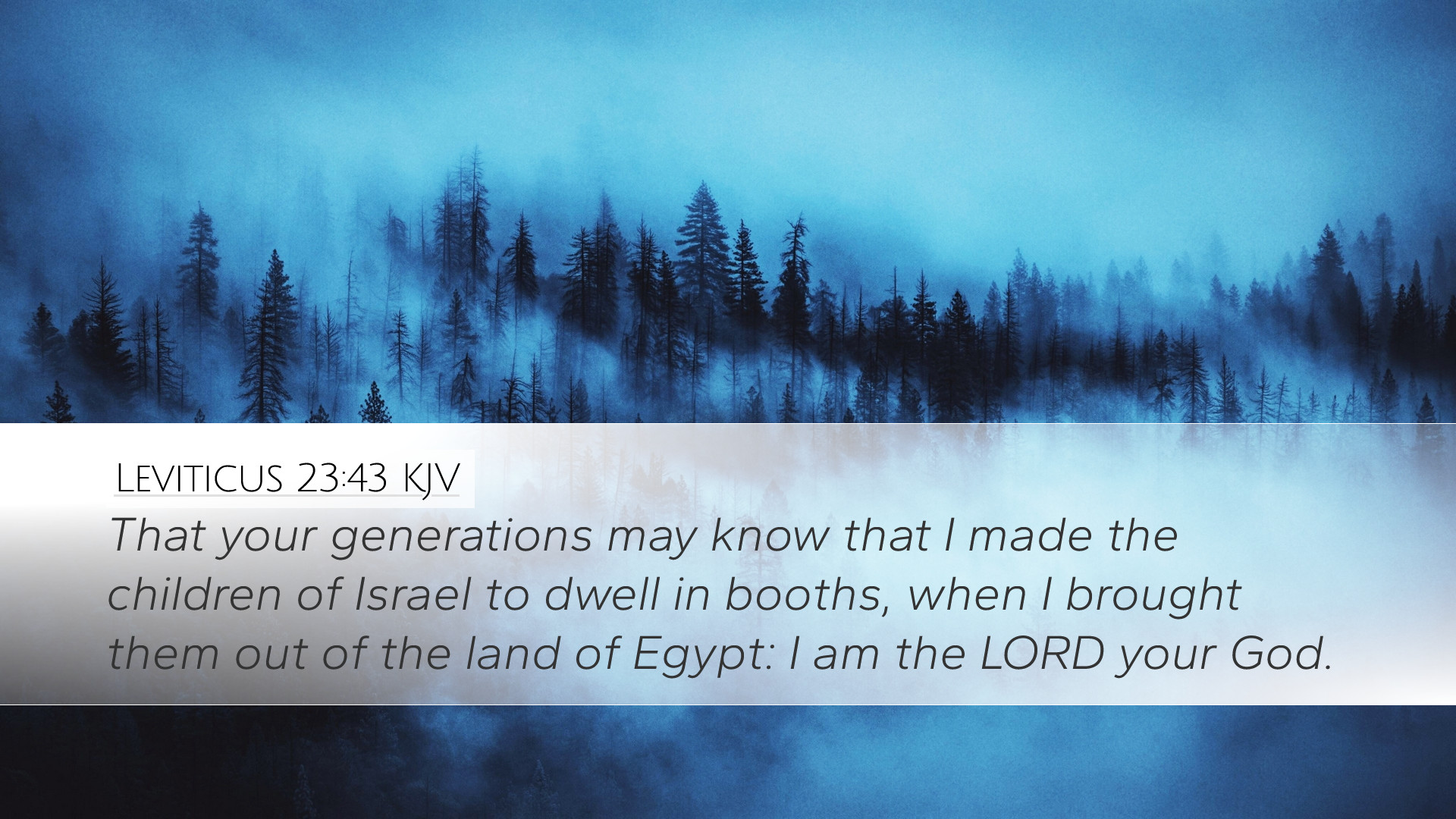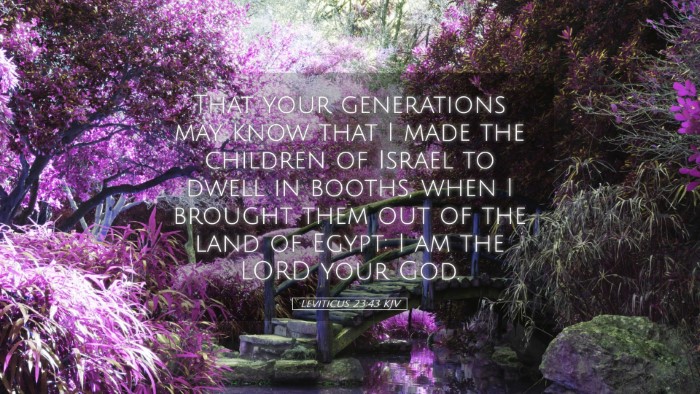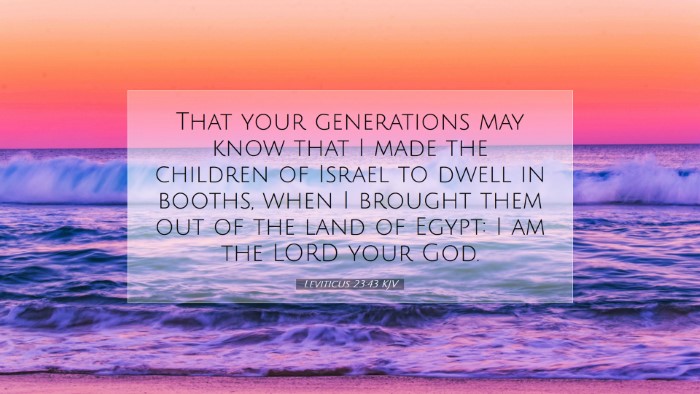Commentary on Leviticus 23:43
Bible Verse: Leviticus 23:43 - "That your generations may know that I made the children of Israel to dwell in booths when I brought them out of the land of Egypt: I am the LORD your God."
Introduction
This verse serves as a significant reminder of the Lord’s benevolence and the communal remembrance of God's deliverance. The command to dwell in booths during the Feast of Tabernacles is not merely a ritualistic observance but a profound declaration of faith and identity for the Israelites. This commentary seeks to synthesize insights from acclaimed public domain commentaries to illuminate the theological and practical significance of this verse.
Theological Insights
Divine Provision and Historical Remembrance
Leviticus 23:43 emphasizes God's desire for His people to remember their journey from bondage to freedom. Matthew Henry notes that God commanded the Israelites to dwell in booths to instill in them a constant remembrance of their roots—their former state of oppression in Egypt. This memory not only serves as historical fact but becomes a living reminder of God's faithfulness and provision during their wilderness experience.
Identity and Community
The observance of this feast helped solidify the identity of the Israelites as a chosen people. Albert Barnes highlights that by practicing this rite, generations would come to understand their historical context and the continuous covenant relationship between God and His people. This builds a sense of community and shared heritage, cementing collective memory in the life of Israel. Each family gathering in booths also reinforces familial bonds within the larger community of believers.
Symbolism of the Booths
Booths, or temporary shelters, symbolize dependence on God. Adam Clarke elaborates that these structures serve as a manifestation of humanity's transitory nature and the recognition of God as the ultimate provider and protector. The fragility of the booths stands in stark contrast to the enduring nature of God's presence and guidance in Israel’s journey.
Covenantal Context
God as Deliverer
In this verse, the phrase "I am the LORD your God" underlines the covenantal name of God, reinforcing His unchanging nature and commitment to His people. Matthew Henry asserts that this declaration anchors Israel’s identity in their relationship with God as both their sovereign and their savior. The repeated emphasis on God’s actions—bringing them out of Egypt—places the foundation of their identity and future as a nation firmly upon divine intervention.
Educational Purpose
The function of this ritual extends beyond mere remembrance; it is intentionally educational. As generations observe and inquire about the significance of booths, there arises an opportunity for teaching about God’s mighty acts. Albert Barnes points out that this creates an avenue for passing down faith and enhances the communal experience of worship, which engages both adults and children in active remembrance of God's faithfulness throughout generations.
Application for today's Believers
Living in Remembrance
For modern believers, Leviticus 23:43 invites introspection regarding how they remember God’s past works in their lives. The practice of setting aside time for spiritual reflection and remembrance—akin to the Israelites dwelling in booths—can cultivate a deeper sense of gratitude and awareness of God's presence in their journey.
The Impermanence of Life
The symbolism of booths also imparts an important lesson on the transient nature of life. Adam Clarke emphasizes that acknowledging life's temporality encourages believers to rely on God's eternal promises rather than earthly security. This perspective can foster resilience and hope among the faithful in uncertain times.
Cultivating Community Worship
The sense of community emphasized in the observance of the Feast of Tabernacles is essential today. Christian communities can find inspiration from this passage to create shared experiences of worship, fostering an environment that encourages storytelling and testimony as means of remembering God's faithfulness.
Conclusion
Leviticus 23:43 stands as a powerful testament to God’s desire for His people to remember and celebrate their identity as His chosen ones. The insights from public domain commentaries present a layered understanding of the significance of this command, revealing its historical, theological, and practical dimensions. For pastors, students, theologians, and Bible scholars, this passage serves as a reminder of the continuity of God's presence and the importance of communal remembrance in the life of faith.


